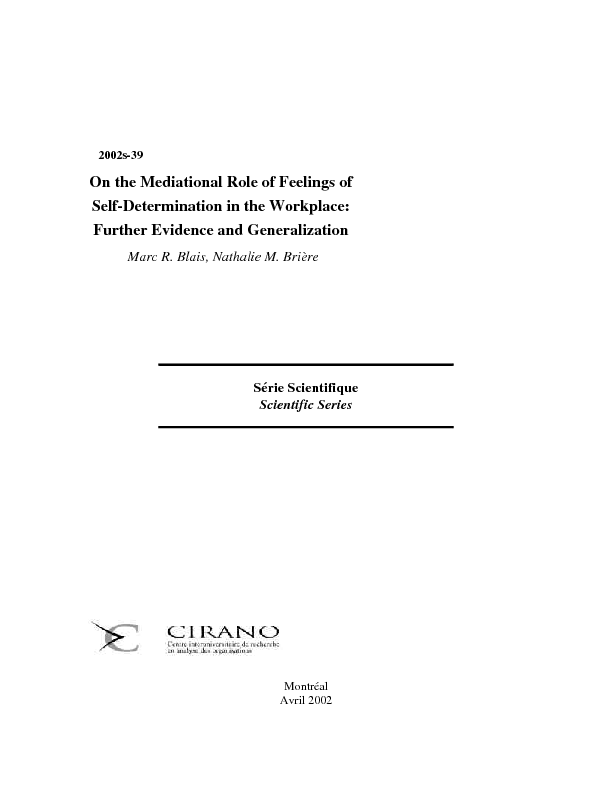On the Mediational Role of Feelings of Self-Determination in the Workplace: Further Evidence and Generalization
The goals of this study were to extend and to verify the generalizability of Deci et al.'s (1989) results, and to test the validity of a preliminary quality of worklife model in which feelings of self-determination play a key mediational role. This model states that informational and controlling work environments will impact in opposite ways on feelings of self-determination. These feelings should then trigger positive impacts on global work satisfaction and work interest. These two latter variables, in turn, are postulated to impact directly on organizational behaviors and general health variables. Subjects were 184 full-time French Canadian employees from different work settings. They were randomly assigned to one of two versions of a questionnaire assessing the different constructs of the model. Two samples were created to cross-validate results and to test the model with two different loci of perceived informational and controlling work environments. In sample 1, subjects assessed their perceptions of their immediate supervisor's styles whereas in sample 2, subjects assessed their perceptions of the global work climate. Results from correlational and path analyses confirmed the predicted relationships between perceptions of informational/controlling environments, feelings of self-determination and the quality of worklife. The expected mediational role of feelings of self-determination as well as of work satisfaction and interest in explaining proximal impacts (i.e., self-perceptions of voluntary absenteeism, distraction at work, and intentions to change job) as well as more distal impacts (i.e., self-perceptions of mental and physical health, cigarette, and alcohol use) was confirmed across samples.
[ - ]




